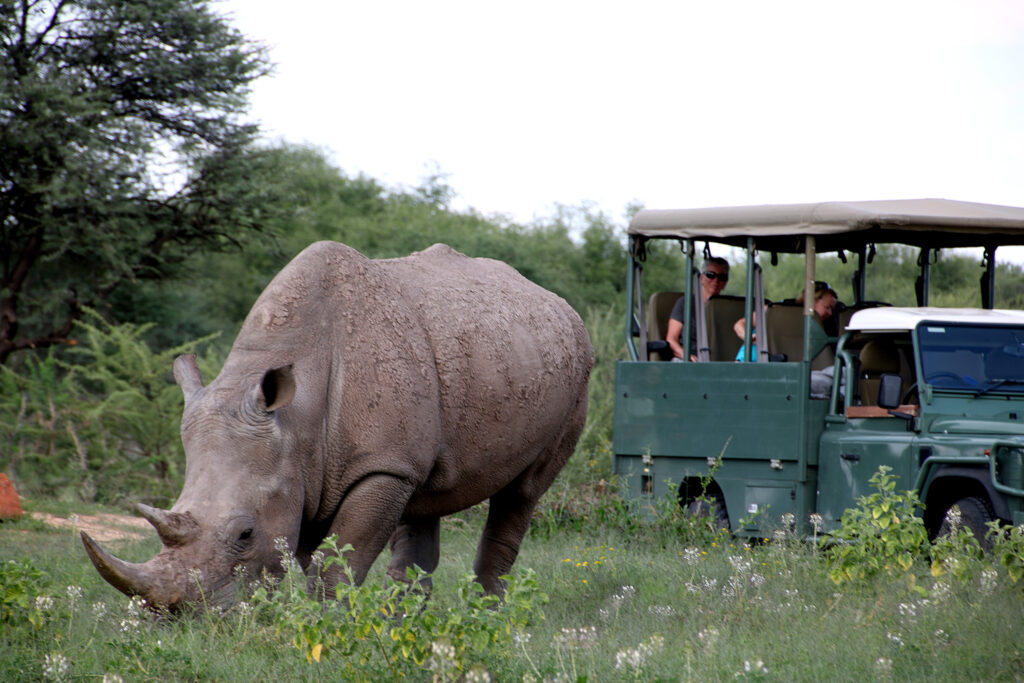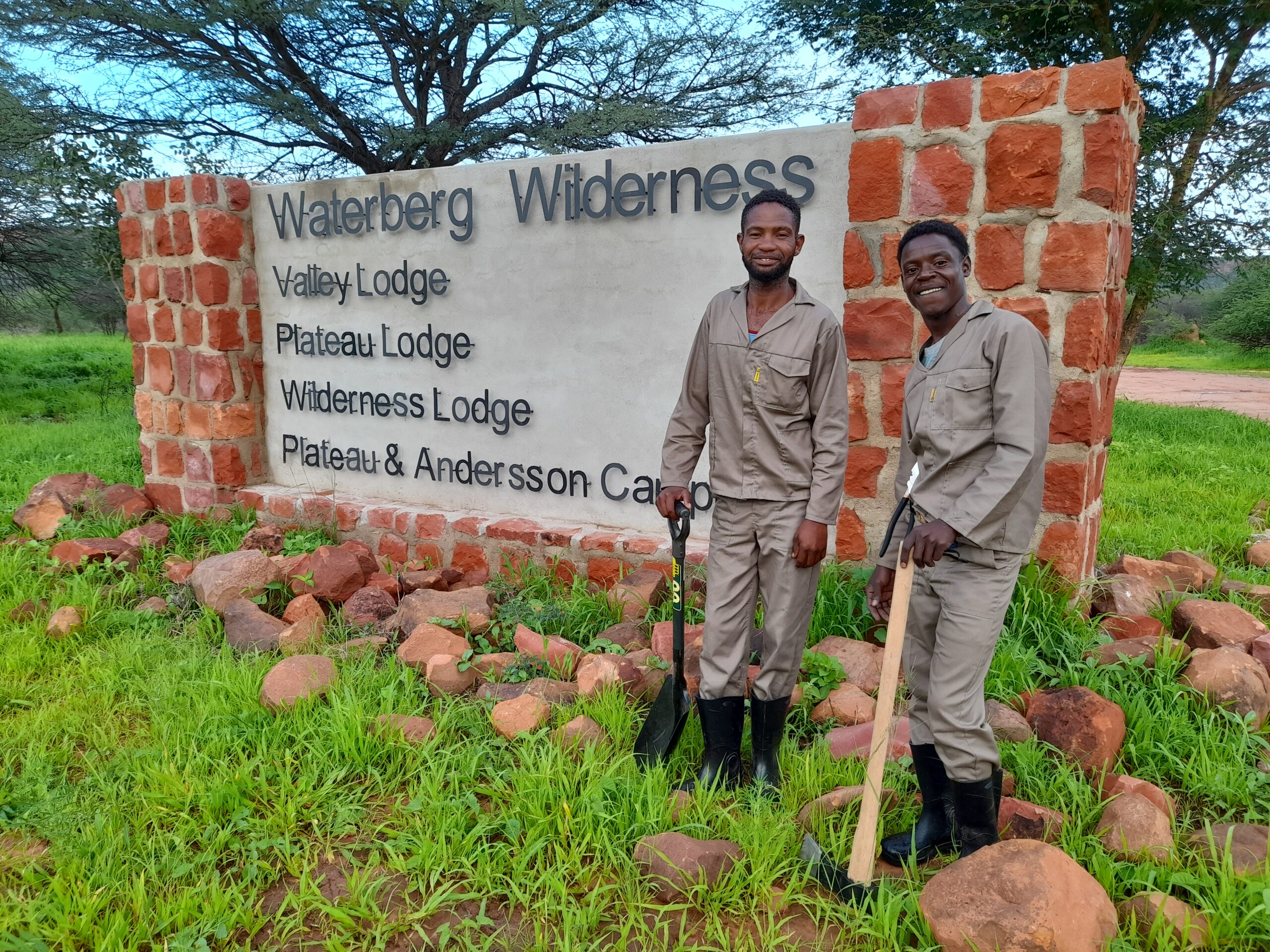Experiencing rhinos in the wild – up close. At Ghaub Nature Reserve in the Otavi Mountains or at Waterberg Wilderness in Namibia’s central north.
Nature conservation
is expensive. A total of 24 guards are responsible for the protection of the diverse fauna at the two nature reserves Waterberg Wilderness and Ghaub. Not only do the guards inspect and patrol on the public roads traversing the reserves, but also the fences and the waterholes. Daily every rhino in the reserve needs to be tracked and inspected for good health.
These protective measures have been financed by income from the existing guest operations. In mid-March 2020, the corona pandemic had reached Namibia. From one day to the next there were no more guests – and therefor no income to finance nature conservation.
Though, corona restrictions had a positive but brief effect on nature conservation. Night curfews and increased police controls slowed down poaching. However, the effect is only short-termed. Many people have lost their livelihood and poaching immediately increased with the first easing during the Christmas period.
The corona pandemic poses new challenges for nature conservation and businesses have to adapt and restructure. As is the case with Ghaub, Waterberg Wilderness and Ondekaremba. Together they launched ONE Namibia. A company that wants to protect wildlife and preserve natural habitats. With the purchase of shares, shareholders can actively participate in this vision.
Thanks to the support of the first shareholders, ONE was able to re-equip the game guards. Equipment includes work uniforms, sturdy shoes, rainproof clothing, flashlights and radios. Each guard station was further equipped with fencing pliers, shovels, axes and fire flaps. Well-guarded, rhinos & co. now await the return of tourist.

Rhino Drive at Waterberg Wilderness. Photo: Sven-Eric Stender




